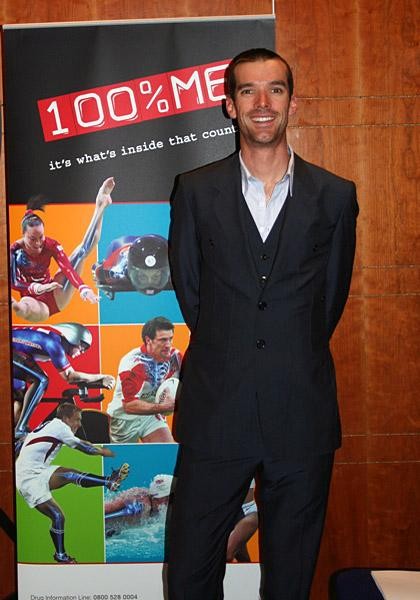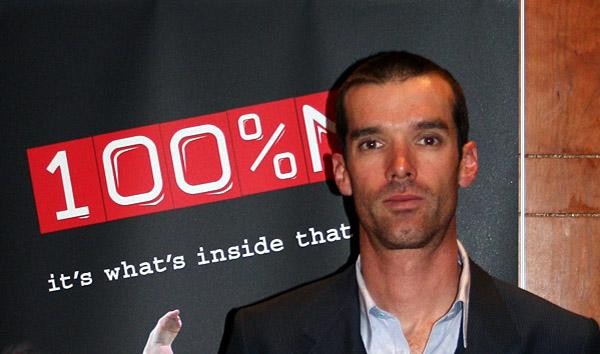Millar addresses UK Sport's Anti-Doping conference
By Ben Atkins, UK Editor in London David Millar was invited to address an Anti-Doping conference...


By Ben Atkins, UK Editor in London
David Millar was invited to address an Anti-Doping conference hosted by UK Sport at a central London hotel on Thursday. Millar - who returned last year from a two-year ban for admitting to using EPO - shared his perspective on doping in elite sport at the conference, which was attended by delegates from all sports.
UK Sport - the umbrella organisation that governs, and provides finance for the individual sports' governing bodies - as well as being the national Anti-Doping organisation - has pushed itself to the forefront of the fight against drugs in sport with a strict regime of out-of- competition testing, athlete profiles, a "Whereabouts System" and most recently, and visibly, with the launch of the "100% Me" brand.
John Scott, UK Sport's director of Drug Free Sport explained, "We haven't chosen the phrase "100% Me" lightly, there is a real meaning to that. It is about achieving something, purely on your own merits."
Both Scott and Andy Parkinson - the Head of Operations for Drug-Free Sport - spoke of the necessity to continue to fight against doping, for future generations, and for the future of sport itself. "If we turn to some sort of legalised structure, then we're going to kill people," said Parkinson, dismissing the idea that, as the cheats are often one step ahead of the testers, that sports should capitulate and legalise all forms of doping. "We want the kids to see sport as a healthy option, if we start looking at legalisation and chemicals within sport then we're going to be looking at a lot of people who won't make it past the finish line."
Parents, they say, will be much less likely to encourage their children to take a sport seriously if they see a risk to their health, as Scott said, "As a parent I will fight tooth and nail to stop it from becoming an accepted practice."
David Millar was less positive about the prospects for raiding the sport of doping, although he, too, stressed that all that could be done, should be done. "The fight against doping is futile, (doping) will always exist, and it's only going to get more advanced. There is always the risk that you're going to get beaten by someone [who's doping].
Get The Leadout Newsletter
The latest race content, interviews, features, reviews and expert buying guides, direct to your inbox!
"To think that we're ever going to have a clean sport is a pipedream... It's going to have to get to a point where we're going to have to say 'that's all we can do, on the practical side, we can't chip the athletes' - that would be what it would come down to, and then they'd find a way of cheating that."
Millar spoke in praise of the anti-doping regimes that are being introduced by some of the teams - singling out CSC and T-Mobile - where he said that riding clean is now more important than winning at all costs. "I'd like to think that this is setting some sort of precedent," he commented. When asked about his own team, Saunier Duval, he conceded that "they're not doing enough," and added that the budget for an anti-doping program should be made available by the teams' sponsors.
"Cycling is too complicated and too expensive for the UCI to police, it's only down to the sponsors to assume their responsibility for putting something back into the sport - they're getting all the coverage, they should give something back, which is allocating some more budget to police their own teams, that's the future."
UK Sport are very positive about the future of British athletes, even when they continue their careers in professional teams, as they will always remain in touch with - and part of - the UK Sport system, in contact with the coaching staff - and the anti-doping staff. As well as this, they are having it proved to them - through their own experience - that it is possible to win clean within a professional coaching system.
A comment from Millar summed up the attitude taken - that it is more important to compete as a clean athlete than it is to win at all costs; "You're proud. Let's say you do get beaten by somebody [who you know is doping], but you know what? You don't care, because you're part of this clean system, and they're part of the Dark Side"